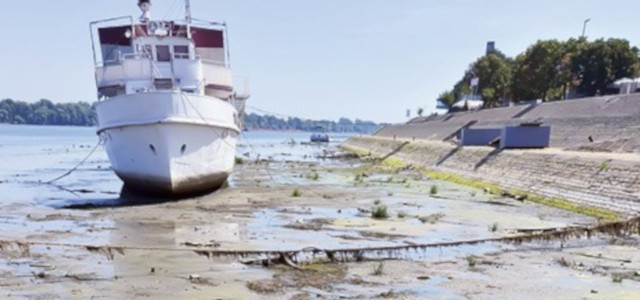In a spirit of this year’s World Water Day theme Leave no one behind, we would like to highlight the importance of youth’s innovative thinking, contribution and involvement in research. We believe youth care about the challenges we are facing today, and with them on board we can change the thinking and shift from reactive to proactive drought management.
Background
Water scarcity and droughts hit Europe and the Danube region frequently and have had large impacts on the economy and welfare of the population. Despite the damages in the last decades, drought is still not considered as an issue of high priority and people are not aware of its impacts. The preception of drought by people vary considerably. How to become prepared? How to move from reactive (crisis management) to more proactive (risk management) approach?
Danube Drought Conference
The Danube Drought Conference will take place on 7-8 May in Vienna, Austria. The event will build on the results of the Drought Risk in the Danube region (DriDanube) project and the activities run by the Drought Management Centre for Southeastern Europe and the Integrated Drought Management Programme in Central and Eastern Europe. The aim of the conference is to increase resilience to drought and reduce risk by advocating an integrated, proactive approach to drought planning, adaptation and management. It is a great opportunity to remind ourselves that combating drought is achievable through proactive problem solving, strong community involvement and cooperation at all levels. The conference will be attended by participants from European, global and regional organizations, as well as by participants from national policy level, practitioners from hydrometeorological services and other sectors (water supply, energy production, transport, biodiversity, agriculture etc.).
Who is this call for?
Young researchers (Master or PhD students) from universities from central and eastern Europe, particularly from Danube basin countries who are work on the following topics:
- Drought identification and characterization,
- Drought indicators, monitoring and forecasting, and early warning systems,
- Assessment of past and future drought impacts,
- Drought risk and vulnerability perception and assessment,
- Water management and governance under drought conditions,
- Drought preparedness and mitigation strategies,
- Development and implementation of Drought Policies and Plans from local to regional, national and international levels,
- Research and Science Interfaces in Drought Policies.
This is a great opportunity for young people to expand your knowledge on proactive integrated drought management, see the latest developments in drought monitoring and early warning, drought impacts assessment and collection, vulnerability assessment, drought governance and meet and chat with leading experts and practitioners in drought sphere.
How to take part?
Step 1
As a first step, prepare an abstract presenting your research about drought. The abstract submissions must be in English, max. two pages long. The abstract can include links to supplemental material, such as a poster draft or videos, however this is not mandatory.
Deadline for submission of the abstract: 20 March 2019
Step 2
On World Water Day, 22 March, the winners will be announced (10 abstracts). The winning authors will have one month to prepare a poster, based on the abstract. All ten posters will be included in the poster session of the conference. The top five winners will be invited to personally present their research at the Danube Drought Conference.
Deadline for submission of the poster: 20 April 2019
Step 3
The invited winners will attend the conference on 7-8 May in Vienna, Austria, where they will present their research. Their costs will be covered by the organisers.
Abstracts and posters should be submitted to gwpcee@gwpcee.org
Top photo: Ship 2012, photo credit Newspaper Politika
